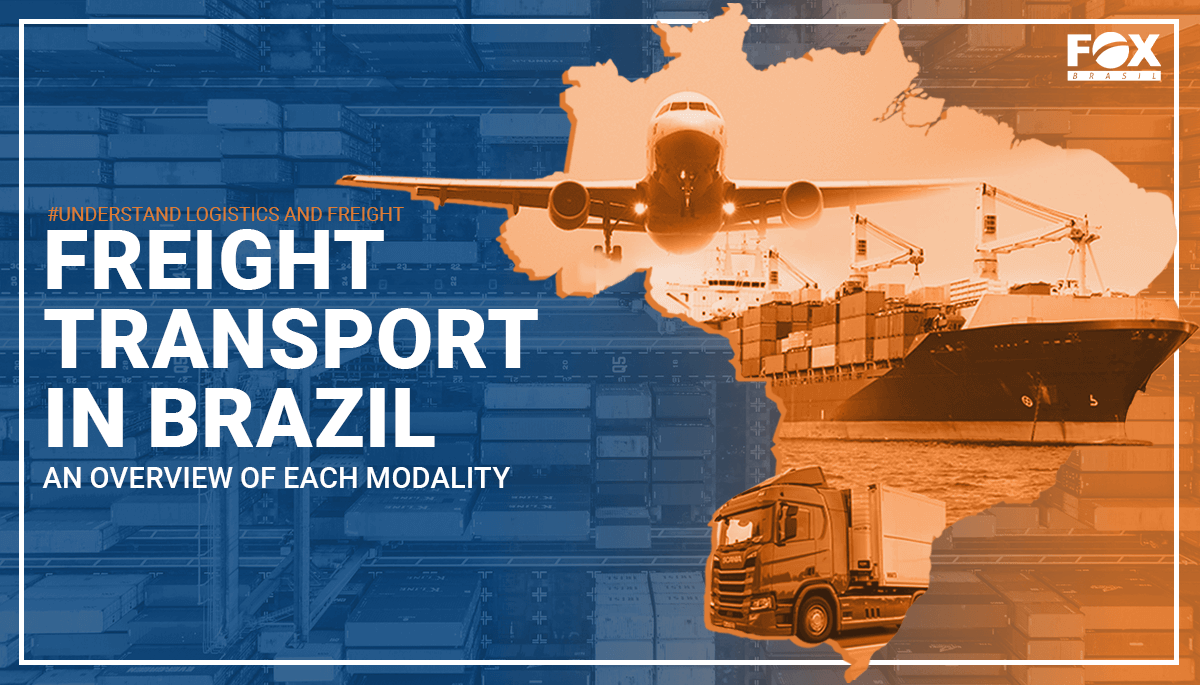Freight transport in Brazil: An overview

Understand Logistics & Freight
Brazil is a massive country with thriving agricultural and industrial sectors, maintaining strong commercial relations with countries worldwide as an active participant in international trade. To efficiently move the vast quantities of agricultural goods the country exports, as well as the manufactured products it imports, a complex network of roads, waterways, and airways has been established for freight transport in Brazil.
In this post, we will take a look at each transportation mode and how their particularities shape the freight transport scenario in Brazil:
Road freight: When it comes to freight transport in Brazil, roads are the primary mode of freight transportation in Brazil, carrying over 65% of all cargo. The government recognizes this and is constantly investing in road improvements to create an efficient highway network that connects production centers to major ports and consumer markets.
However, there’s a catch. While better roads benefit logistics, previous fuel price hikes have left their mark. Although there has been some recovery in 2024, fuel costs are still not completely stable, which affects logistics companies and, ultimately, consumer prices.
Sea freight: Brazil is not only massive on land but also a force to be reckoned with on the seas. Renowned international ports like Santos and Itajaí make Brazil a major player in global sea freight. But that’s not all – The country also has an extensive network of rivers, which opens the possibility of cabotage as an option for freight transport in Brazil.
This waterborne transport system efficiently moves cargo within the country using these vast waterways, with barges carrying products cruising down the river network to reach ports for export, all without ever leaving Brazilian soil. This unique system adds flexibility and cost-effectiveness to Brazil’s freight landscape.
Air freight: Air transport in Brazil is on the rise. Although it’s still in development, it’s experiencing significant growth. As of 2024, cargo transport costs remain high due to the limited number of international airports equipped for large-scale cargo handling. Most of Brazil’s major airports are located in São Paulo, such as Guarulhos and Viracopos, and this proximity between one another can limit cargo reach by air freight to the rest of the country’s extension, showing that the network is not as extensive as in more developed nations.
However, these existing airports are leading the way by actively investing in advanced cargo handling technologies such as automated sorting systems, temperature-controlled storage facilities, and distribution HUBs. Furthermore, expansion projects are underway at several airports to increase their cargo handling capacity. This focus on infrastructure development sets the stage for a future where air freight plays a more prominent role in Brazil’s freight transport and economic engine.
By combining the strengths of each mode – road’s efficiency, sea’s reach, and air’s speed – Brazil ensures adaptable and efficient freight transport across its vast territory. As the nation’s economy continues to evolve, so will its freight transport system, adapting to meet the ever-changing demands of a globalized market.